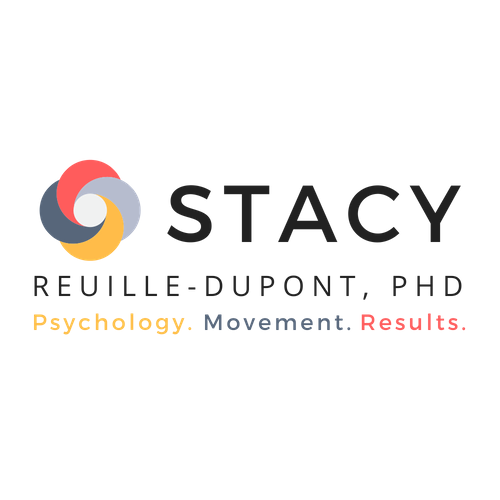Photo Credit: Photo by Jakob Cotton on Unsplash
Living with ADHD (Attention Deficit Hyperactivity Disorder) presents unique challenges including navigating the often unpredictable and exciting nature of luck. For individuals with ADHD, cognitive biases, such as attribution bias and the illusion of control, can exacerbate impulse issues, need for stimulating experiences, and make it difficult to manage the ups and downs of daily life. In this article, we’ll explore the intersection of ADHD, luck, impulse issues, and how understanding the dynamic nature of ADHD skill use can empower individuals to navigate their ADHD more effectively. Read on for ADHD Lifestyle Tips
The ADHD Experience and Luck:
ADHD symptoms are categorized as impulsivity, hyperactivity, and inattention. These symptoms can affect various aspects of life, including academic and work performance, relationships, and overall well-being. When it comes to luck, individuals with ADHD may struggle with:
Attribution Bias: People with ADHD may attribute their successes solely to external factors like luck while blaming themselves for failures. This can lead to feelings of inadequacy and undermine self-esteem.
Often people with ADHD have been shamed throughout their lives for not being able to control impulses and complete tasks due to their need to be stimulated which leads to being sidetracked by the new and exciting things around them. Couple that with the attribution bias, and you have a setup to heavily blame yourself for things that go wrong.
Illusion of Control: For folks with ADHD there can be a sense of over-focus or the sense that they have no control. One might even oscillate between these two experiences. This can result in impulsive decision-making and difficulty accepting unpredictable outcomes. It can also lead individuals to unhealthy levels of controlling behavior to feel successful.
If you find yourself overfocusing, as many do as an ADHD coping skill, to get things done and be effective in their environments, you might want to take a short – timed – break to help yourself reorient to your priorities and what is important at the moment. Just remember to use your timer so you can return to your task at hand with renewed vigor and not panic that you got too distracted during your break.
Impulse Issues and ADHD:
Impulsivity is a hallmark symptom of ADHD and can manifest in various ways, such as:
Impulse Buying: Acting on the impulse to buy something without considering the consequences, leading to financial strain. You might feel so lucky that you found that a great deal in the perfect most beautiful color, without considering that you really do not need the item and probably won’t use it much after bringing it home. While it may have been fun to find, think about all the possibilities it offered you as you gazed upon it in the store, in the end, the excitement of the moment, may not be worth the regret of not having your hard-earned money in your pocket.
Impulsive Decision-Making: Making decisions on a whim without considering the long-term implications, which can lead to regrets and setbacks.
Emotional Impulsivity: Reacting impulsively to emotions without considering the impact on oneself or others, leading to strained relationships and conflict.
This can also include impulsive emotional eating. You know, when you didn’t plan to eat but you were bored, tired, stressed, angry, or overwhelmed in some way and food seemed to be the thing that helped make you feel better … BUT then you wonder why you ate all that.
When it comes to ADHD impulsivity can be helpful or detrimental to your goals. To manage impulsivity you’ll want to work on your skills for maintaining to-do lists, some sort of structure to your day, your movement routines, getting good sleep, and using your timers to make sure you can keep yourself reorienting to the task at hand and your priorities.
Empowering Strategies:
Understanding the role of luck and impulse issues in ADHD is the first step toward developing effective ADHD coping strategies and behavior management tools for living with ADHD:
Mindfulness: Practicing mindfulness can help individuals with ADHD become more aware of their thoughts, emotions, and behaviors, reducing impulsive reactions and promoting better decision-making.
For many with ADHD the idea of sitting still and focusing on something as boring as the breath is a bit much, however, consider all the different cells your breath touches, feel where it goes in your body, notice your muscles expanding and contracting, basically find ways to make something simple more complex so it keeps you on your toes as you allow your mind to follow it.
You can also do mindfulness while eating, walking, running, or tapping a foot or a finger on your leg. There are all sorts of ways you can help captivate your mind to increase its ability to stay interested in the task you are doing.
Impulse Control Techniques: Learning techniques such as impulse delay (taking a moment before acting on an impulse) and distraction techniques (redirecting attention away from impulsive urges) can help manage impulsivity in everyday situations.
For people with ADHD, this can look like having a touchstone. An item like a ring, bracelet, necklace, tattoo anything that helps you remember to refocus on your task and goal.
Do not underestimate the role of music playlists, timers, and having a TV or YouTube video in the background (just make sure that those items stop playing so you notice the silence) to help you remember to refocus your attention every so often.
Cognitive, Somatic, and Behavioral Therapy for ADHD: Psychotherapy and skills training are critical to your ability to better support yourself with skill, positive self-talk, and increased feelings of self-efficacy and personal understanding.
Therapy can help individuals challenge negative thought patterns, develop coping strategies, and improve self-regulation skills, empowering them to navigate the challenges of ADHD more effectively.
In addition, many with ADHD do not give themselves enough credit for their ability to navigate change, master adaptability, and manage stress effectively, however, these are superpowers of the ADHD brain.
Often the person with ADHD does much better at these cognitive skill sets than the average person because having ADHD gives them more cognitive flexibility.
Seeking Support: Connecting with a therapist or support group specializing in ADHD can provide valuable guidance, validation, and practical strategies for managing symptoms and improving overall well-being.
I can’t tell you how many of my clients get comfort from knowing they are not alone in their experiences with ADHD. They become better at communicating their needs to partners, friends, and coworkers as well as better at setting boundaries with themselves. As a result, they feel much more confident and capable of navigating their lives with greater ease and grace.
Conclusion
Living with ADHD can be challenging, especially when navigating the unpredictable nature of luck and coping with impulse issues.
By understanding the cognitive biases at play, such as attribution bias and the illusion of control, individuals with ADHD can develop strategies to mitigate impulsivity, stay focused, and cultivate a more balanced perception of luck.
Through mindfulness, impulse control techniques, therapy, skills training, and seeking support, individuals with ADHD can empower themselves to navigate life’s uncertainties with greater resilience and confidence whether they feel lucky or not.
Remember, you are not alone, and with the right tools and support, managing ADHD and thriving in the life you want to create is within reach.
ADHD is Helped with Movement and Proper Diet Check our Our Movement & Meals for ADHD 30 Day program
#MindBodyRecovery #ADHDInsight #SomaticPsych #HolisticHealingJourney #MentalWellnessMatters #EmbraceChangeHeal #TherapeuticTransformation #WholeSelfHealing #MindBodyOptimization #PsychologyOfWellness #TrainMindBody #NutritionPsych #MindfulMovement #HolisticHealthCoach #MentalFitnessJourney #PsychoWellness #MindBodyFuel #SelfOptimizationTriad #StudioBLife #VibrantLiving #EmbodiedSpiritSelf




 Twitter
Twitter Facebook
Facebook Linkedin
Linkedin






